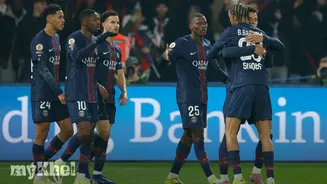Unlock the secrets to radiant skin with Ayurveda! Discover 8 herbal treatments to transform your beauty routine. Read more!
Namaste, and get ready to unlock the secrets to radiant, glowing skin using the power
of Ayurveda and traditional Indian herbal wisdom! We all dream of a complexion that shines with health, and you don't need expensive chemical treatments to achieve it.
Our ancient traditions are brimming with natural remedies that are gentle, effective, and easily accessible right from your kitchen or local market.
This article brings you eight incredible herbal treatments that will transform your beauty routine and leave you feeling like a refreshed, radiant version of yourself. Forget harsh chemicals and embrace the healing power of nature. Let's delve into these age-old secrets.
Turmeric (Haldi): The Golden Healer
Turmeric, or haldi as we lovingly call it, is a staple in Indian kitchens and a powerhouse ingredient in numerous skincare remedies. It’s renowned for its anti-inflammatory, antiseptic, and antioxidant properties.
Curcumin, the active compound in turmeric, helps fight acne-causing bacteria, reduce redness, and even out skin tone. For centuries, brides in India have used 'haldi' ceremonies before their weddings, a testament to its ability to bring out a natural, vibrant glow.
How to use it: Create a simple face mask by mixing a teaspoon of turmeric powder with yogurt (or milk for dry skin) and a touch of honey. Apply evenly to your face and neck, leave on for 15-20 minutes, and rinse off with lukewarm water. Use this mask 2-3 times a week for best results.
You can also add a pinch of turmeric to your regular moisturizer to boost its effectiveness. For spot treatment of acne, mix turmeric powder with a few drops of water to form a paste and apply directly to the pimple.
Be mindful that turmeric can temporarily stain the skin so avoid using it carelessly. In short, turmeric is known for its antioxidant properties which can act as a treatment for acne.
The active compound known as curcumin acts as the main component on skin to reduce redness as well as even out the facial skin tone. Be mindful when using turmeric, it can at times stain the skin.
Neem: The Skin Purifier
Neem has been revered in Ayurveda for its powerful medicinal properties. Known for its antibacterial, antifungal, and anti-inflammatory qualities, neem is a fantastic remedy for acne, eczema, and other skin infections. It helps purify the blood, detoxify the skin, and promote healing.

Many Indian households have a neem tree in their backyard, symbolizing its importance in traditional medicine.
How to use it: Boil a handful of neem leaves in water until the water turns green. Let it cool, and use this water to wash your face.
You can also grind neem leaves into a paste and apply it to affected areas for spot treatment or use it as a face mask. Neem oil, diluted with a carrier oil like coconut or almond oil, can be applied to the skin to treat various skin conditions.
Regular use of neem can help keep your skin clean, clear, and healthy. Neem is a natural remedy to treat eczema, acne and other infections. It is known that neem helps purify blood, detox and heal wounds. If you have a neem tree in your yard, boil the leaves and use it to wash your face.
Neem oil can be diluted with coconut or almond oil. It is important to see if there is any allergy from these mixtures, apply lightly on the skin and observe.
Aloe Vera: The Soothing Saviour
Aloe vera is a succulent plant known for its soothing and healing properties. Its gel contains vitamins, minerals, and antioxidants that hydrate the skin, reduce inflammation, and promote wound healing. It’s a fantastic remedy for sunburns, dry skin, and minor cuts and burns.
Aloe vera is widely available and easy to grow, making it a convenient addition to your home garden.
How to use it: Simply break off a leaf from the aloe vera plant and squeeze out the gel. Apply it directly to your skin as a moisturizer or to soothe sunburned skin.
You can also find commercially prepared aloe vera gels, but make sure to choose one that is pure and free of additives. Apply aloe vera gel regularly to keep your skin hydrated, smooth, and healthy. With minerals, antioxidants and vitamins, aloe vera possess healing and soothing properties.
If you have sunburn from being outside for long, aloe vera can hydrate the skin. One can always purchase this from the local market if unavailable locally.
Tulsi (Holy Basil): The Sacred Protector
Tulsi, or holy basil, is a sacred herb in Hinduism and is known for its numerous medicinal properties. Its antibacterial, antifungal, and anti-inflammatory properties make it an excellent remedy for acne, blemishes, and skin infections. Tulsi also helps to purify the blood and detoxify the skin.
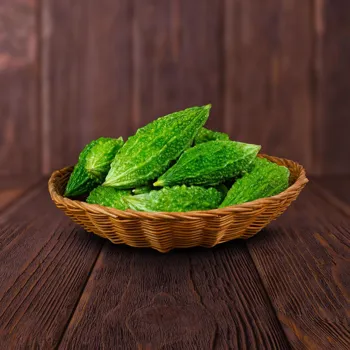
Many Indian homes have a tulsi plant in their courtyard, worshipped for its spiritual and healing powers.
How to use it: Grind a few tulsi leaves with a little water to make a paste. Apply this paste to your face and leave it on for 15-20 minutes. Rinse off with water.
You can also boil tulsi leaves in water and use it as a toner. Regular use of tulsi can help keep your skin clear, radiant, and protected from infections.
Tulsi leaves in Ayurveda possess antifungal, antibacterial and anti-inflammatory components.
Tulsi can be used to treat acne, blemishes and skin infections. Tulsi can be found in an Indian home, treated and worshipped for its spiritual and healing properties. If you have access to tulsi just boil the leaves with water and use it as a toner.
Sandalwood (Chandan): The Skin Brightener
Sandalwood, or chandan, is a fragrant wood known for its skin-brightening and cooling properties. It helps to reduce blemishes, pigmentation, and scars, leaving your skin with a radiant glow.
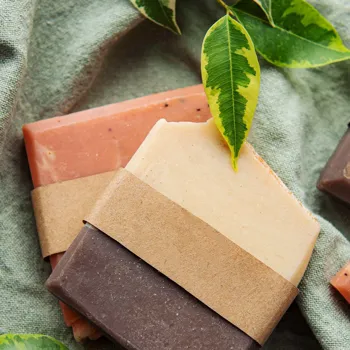
Sandalwood powder is often used in face masks and skincare products for its ability to improve skin texture and tone.
How to use it: Mix sandalwood powder with rose water to make a paste. Apply this paste to your face and leave it on until it dries. Rinse off with water.
Sandalwood oil, diluted with a carrier oil, can also be used to massage the skin. Regular use of sandalwood can help to brighten your skin, reduce blemishes, and improve skin texture. With cooling properties, sandalwood is known to brighten and reduce scars as well as remove blemishes.
It can also improve the texture of the skin along with its tone. This can be turned into paste along with rosewater and lathered on skin. Sandalwood oil too can be used for skincare as well.
Rose Water (Gulab Jal): The Hydrating Tonic
Rose water, or gulab jal, is a fragrant liquid made by distilling rose petals with water. It is known for its hydrating, soothing, and anti-inflammatory properties. Rose water can help to balance the skin's pH level, reduce redness, and hydrate the skin.
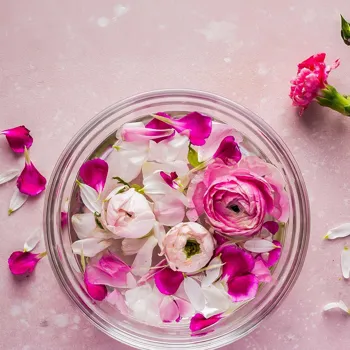
It's a gentle and versatile ingredient that can be used in various skincare routines.
How to use it: Simply spritz rose water on your face as a toner after cleansing. You can also use it to mix face masks or as a refreshing facial mist throughout the day.
Rose water is suitable for all skin types and can help to keep your skin hydrated, radiant, and refreshed. With anti inflamatory properties, rose-water or gulab jal is known to hydrate the skin. It can reduce the redness as well as balance the skin.
It is a versatile ingredient that is suitable for all skin types. Sprinkling rose water after cleansing will hydrate.
Amla (Indian Gooseberry): The Vitamin C Powerhouse
Amla, or Indian gooseberry, is a rich source of Vitamin C and antioxidants. It helps to boost collagen production, protect the skin from free radical damage, and promote a youthful complexion.
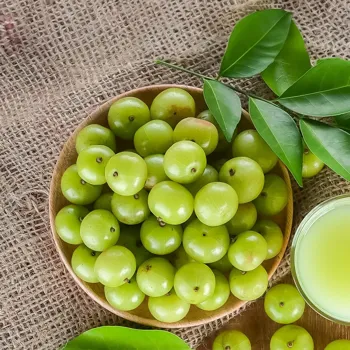
Amla is also known for its anti-aging properties and can help to reduce the appearance of wrinkles and fine lines.
How to use it: Consider incorporating amla powder in your diet or you can make a face mask by mixing amla powder with water or honey.
Apply this paste to your face and leave it on for 15-20 minutes. Rinse off with water. Regular intake of amla can help to improve your skin's health and vitality. Amla, a rich source of Vitamin C improves skin health as well as vitality of the skin. Antioxidants in Amla can help protect the skin.
Wrinkles can be reduced and helps promote a youthful complexion. Amla powder can also be mixed with water or honey to make a face mask.
Honey (Shahad): The Natural Humectant
Honey is a natural humectant, meaning it attracts moisture to the skin. It also has antibacterial and antioxidant properties that can help to heal wounds, reduce inflammation and protect the skin from damage. Honey is a gentle and effective ingredient that is suitable for all skin types.

How to use it: Apply a thin layer of honey to your skin as a face mask. Leave it on for 15-20 minutes and rinse off with warm water. You can also add honey to homemade face scrubs or cleansers to boost their effectiveness. Regular use of honey can help keep your skin hydrated, smooth, and radiant.
As a natural humectant, honey retains moisture of the skin. It also helps to heal skin damages due to its antibacterial and antioxidant properties. It is simple and effective even for sensitive skin types. Applying honey as a face mask helps retain moisture.
These eight herbal treatments are just a starting point. A whole world of natural remedies awaits you in the realm of Ayurveda and traditional Indian herbalism. Remember to consult with a qualified Ayurvedic practitioner for personalized advice and guidance.
Embrace the power of nature, be patient, and with consistent effort, you'll be well on your way to achieving the radiant, healthy skin you've always desired!
AI Generated Content. Glance/InMobi shall have no liability for the content